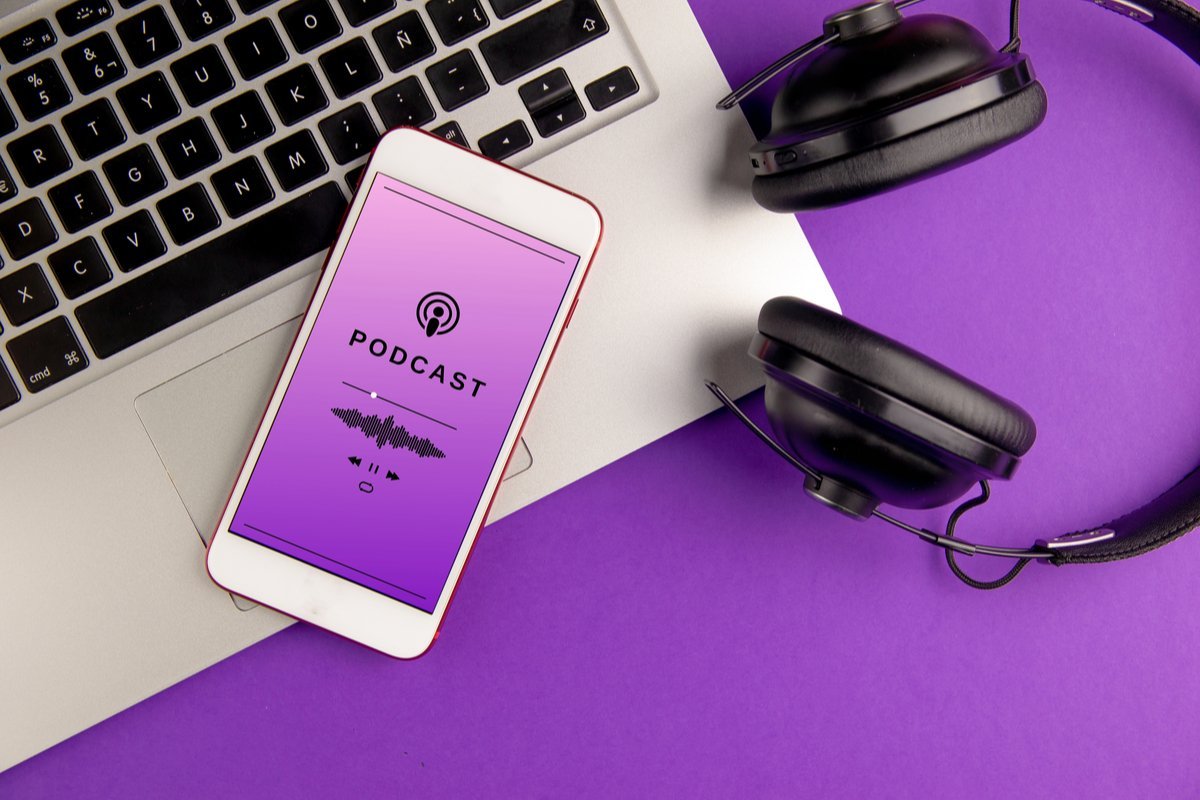This post originally appeared on tBL member Joshua Lyon’s blog Joshua Lyons Marketing Blog and is republished with permission. Find out how to syndicate your content with theBrokerList.

If you’re looking to create a successful podcast, you’ll want to make sure that your audience can find you. Implementing good SEO practices is one way to do just that! The phrase “search engine optimization” can be enough to send fear coursing through you, but it truly doesn’t have to be a daunting process. Read on to discover fourteen simple ways to use SEO to optimize your podcast and reach a broader audience quickly.
The Link Between SEO and Podcasts
The whole purpose of SEO is to help your online offering be found by search engines. Initially, most people will think of Google here, and it’s true; Google is a big part of the SEO process for most online offerings. For podcasts, however, it’s important to remember that each hosting platform also has its own built-in search engine (think Spotify or Apple Podcasts, for example). So, you must optimize your podcast to get the best results, for where you want it to be found.
SEO practices will help you acquire traffic across the internet, both on a large scale and a more niche one. What do I mean by that? Well, let’s say, for example, that you have a podcast about golfing. SEO will help anybody looking for this type of information to find you. If, however, somebody else is specifically looking for a podcast on how to perfect their short game, you will also need to implement SEO practices to ensure that this person can find a specific episode of your podcast. Let’s take a look at some of the easiest ways to generate more organic interest in your podcast!
 1. Think Quality Above All Else
1. Think Quality Above All Else
Before we dive into SEO practices and how to optimize your podcast, it’s important to mention that the absolute most beneficial thing you can do to create more hype around your podcast is to offer your audience high-quality, original content that they can’t find anywhere else. Giving your audience something positive to talk about is an absolute necessity before you even think about SEO. If you haven’t done this, stop reading now and get back to the drawing board.
And by the way, quality content is what search engines are looking for too. Part of good SEO is creating quality content. So, they aren’t even mutually exclusive. But still, focus on extreme quality in what you create. Regardless of SEO, that’s extremely important when trying to drive traffic to your podcast.
2. Create a Catchy Title
According to SearchEngineLand.com, “The iTunes ranking algorithm for podcasts places a heavy emphasis on the title of the podcast,” among other factors. This offers a concrete example of why coming up with a catchy and compelling title is so imperative to your podcast’s success. Spend some time to create a title that clearly reflects what your podcast is about and how it will benefit your audience, while still using some of the quality keywords for your industry. Additionally, each episode title should take this same information into consideration.
3. Write an Informative Description
Including metadata and keywords in your podcast and episode descriptions will help it to stand out to search engines, too, while also providing your audience with more in-depth knowledge about what they can expect from you. Using tags will also help you find and connect with your audience.
Are you enjoying this post? If so, be sure to subscribe for occasional email updates from our team!
4. Determine a Focus Keyword for Each Episode
Each individual episode should have a focus keyword. While your episodes will likely have a recurring theme, you won’t necessarily want to use the same exact keyword for each one. The more variety that you can offer as far as keywords go, the more likely you are to broaden your reach. The most important thing, when choosing keywords, is that they have low competition and a high search volume. There are hundreds of free resources (like this one from Wordstream) on the internet to help you determine which keywords are the best for your industry.
5. Build a Professional Site
While creating a site to attach to your podcast is not wholly necessary, it can be extremely beneficial in boosting your exposure by helping you to be more easily seen by the bigger search engines like Google and Bing. This occurs because your site is able to offer these search engines more information about the context of your podcast.
6. Maximize Your Page Speed
The user experience is very important to search engine giant, Google. That’s why they make it a point to offer higher ranks to websites with faster speeds. Speeding up your site can be done by moving to a better server, reducing image file sizes, and using Content Delivery Networks, to name a few. When you do this, you are helping to optimize your podcast for more listens.
Related Blog Post: 7 Reasons Websites Load Slowly
7. Create Related Blog Posts
Another benefit of creating a professional site to link to your podcast is that it can act as a platform for you to create regular blog posts that are connected to your episode content. Using keywords throughout your posts will also help search engines better understand what type of information you are putting out there. Blogs are also a great way to encourage audience engagement, expand on a topic, or hone in on a particular portion of your podcast episode that may deserve a little extra attention or explanation.
8. Use Social Media
Social media is extremely important in any modern marketing campaign. If you want to be seen and heard, you’ll need to make sure that your podcast has access to the right social media platforms. Gaining new followers, getting likes, comments and, particularly, shares is a great way to spread the word on what your podcast is all about and generate some excitement. The higher number of likes, shares, retweets, etc. that your content gets on social media, the more likely it is to gain traction on the big search engines.
 9. Find Relevant Directories
9. Find Relevant Directories
There are millions of online directories for every purpose all over the web. Get your podcast, site and blog listed on as many of these as you can. Doing so will help you establish your place as an industry professional and will also help you gain access to a relevant audience. This also works to create backlinks to your content which will increase your rankings on search engines.
10. Link Building
Getting linkbacks to your content is important in an SEO strategy, but it’s equally important to link out to other quality content with relevance. Doing so allows the search engines to associate you with this high-ranked content and will gradually lead to your rankings climbing, as well.
11. Ask Your Audience for Reviews
The success of your podcast is in your audience’s hands. If they enjoy the content that you are putting forth, they are going to keep coming back, and if they don’t, they aren’t. It’s as simple as that. Your devoted fans singing your praises and leaving positive reviews on your podcast will help to build your credibility with search engines, as well as help you to broaden your outreach by swaying others to come and check out what you’re doing.
12. Recycle Your Old Content
The podcasts that you’ve done can be valuable for you for years to come. If you hit a space of stagnation, go back to the beginning and optimize the information provided in your episode by turning it into a blog post, an infographic, a video, an article, or otherwise. Doing so will work to increase your rankings on a specific subject or topic and also showcase your expertise.
13. Add Your Podcast to Google Podcasts
Never overlook the power of Google. Now that they’ve added a search engine specific to podcasts, there’s really no reason that you shouldn’t add yours to it. It’s sure to be successful in driving more traffic to you. When you are trying to optimize your podcast, using Google is highly effective.
14. Get More Subscribers
If you really want to experience a boost in your podcast’s visibility, you should focus on getting more subscribers on iTunes, Apple podcasts, and anywhere else that you choose to put it. Again, going back to the beginning, the easiest way to do this is to offer your audience quality content. Additionally, however, you could implement the use of pop-ups to discourage users who are leaving the page, send emails out to your email list to tell them where they can find your podcast and keep them informed on new content, or create an Apple smart banner for your site to send visitors directly to your podcast.
Now that you know exactly how to optimize your podcast, what are you waiting for? Get out there and start sharing whatever it is you are passionate and knowledgeable about today! For help with your search engine optimization, website, or marketing in general, feel free to contact us!

 1. Think Quality Above All Else
1. Think Quality Above All Else
 9. Find Relevant Directories
9. Find Relevant Directories

